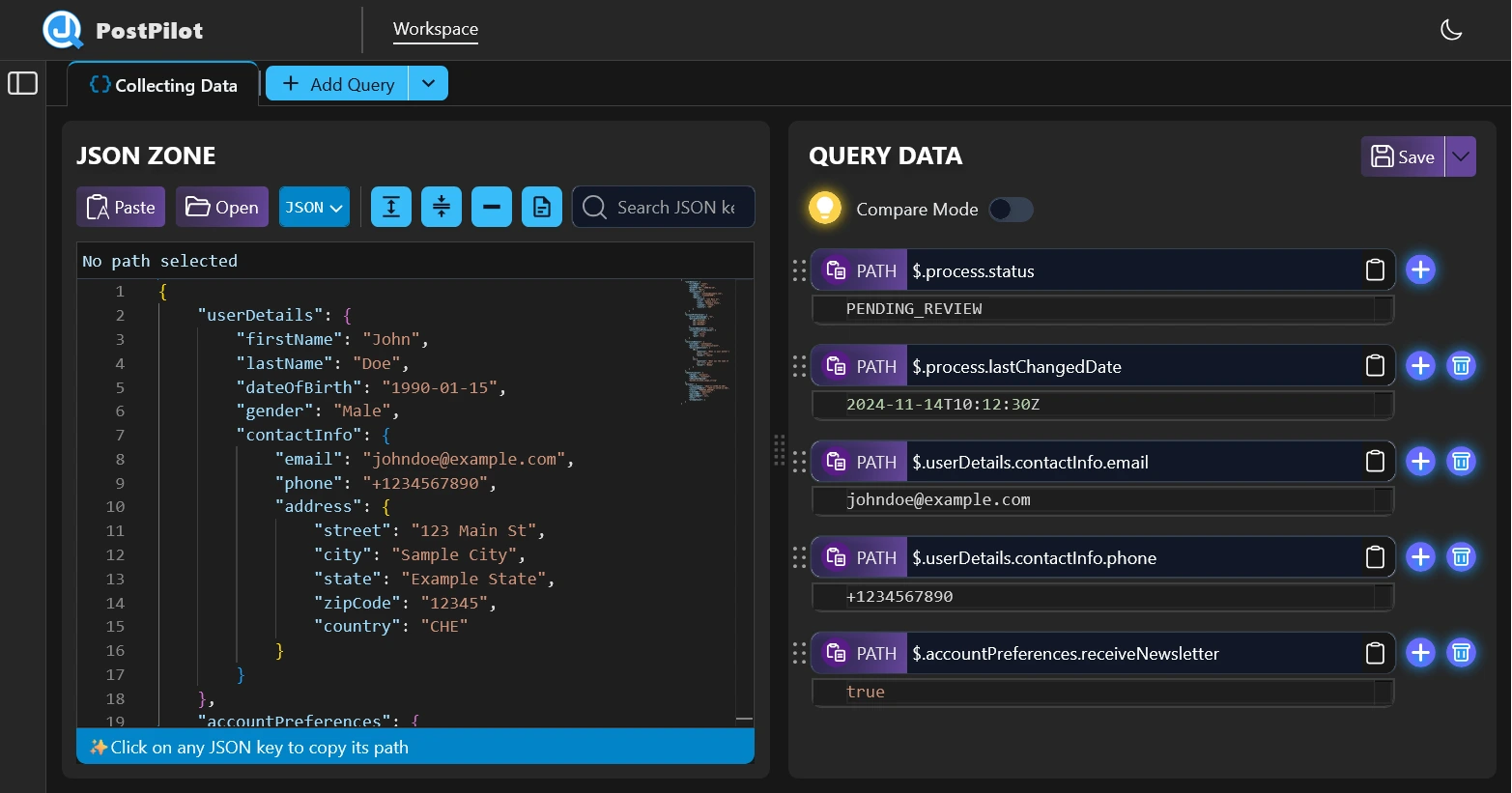How to Use JSONPath to Query and Extract JSON Data Efficiently

Introduction
JSON (JavaScript Object Notation) is the backbone of modern data interchange, commonly used in APIs, configuration files, and structured logs. However, querying specific data from complex JSON structures can be cumbersome.
Enter JSONPath—a powerful query language that simplifies JSON data extraction, much like XPath does for XML. This guide will explore JSONPath, its syntax, and practical use cases to make querying JSON more efficient.
What Is JSONPath?
JSONPath provides a flexible way to analyse, transform, and selectively extract data from JSON documents without manually iterating through arrays and nested objects.
Example:
import jp from 'jsonpath';
const jsonData = {
store: {
book: [
{ category: "fiction", title: "The Catcher in the Rye", price: 10.99 },
{ category: "fiction", title: "To Kill a Mockingbird", price: 8.99 },
{ category: "non-fiction", title: "Sapiens", price: 14.99 }
],
bicycle: { color: "red", price: 199.99 }
}
};
const titles = jp.query(jsonData, '$.store.book[*].title');
console.log(titles); // ["The Catcher in the Rye", "To Kill a Mockingbird", "Sapiens"]
JSONPath Syntax and Operators
JSONPath syntax allows efficient querying using various operators:
| JSONPath Expression | Description | Example |
|---|---|---|
$ | Root element | $.store |
. | Child operator | $.store.book |
[] | Array index | $.store.book[0] |
[*] | Wildcard (all elements) | $.store.book[*].title |
.. | Recursive search | $.store..price (fetches all prices) |
?() | Filter expressions | $.store.book[?(@.price > 10)] |
@ | Current node | $.store.book[?(@.category=="fiction")] |
Practical JSONPath Queries
1. Extract All Book Titles
$.store.book[*].title
Result:
["The Catcher in the Rye", "To Kill a Mockingbird", "Sapiens"]
2. Find Books That Cost More Than $10
$.store.book[?(@.price > 10)].title
Result:
["The Catcher in the Rye", "Sapiens"]
3. Get the Price of the Bicycle
$.store.bicycle.price
Result:
199.99
4. Retrieve All Prices (Books & Bicycle)
$.store..price
Result:
[10.99, 8.99, 14.99, 199.99]
How to Use JSONPath in Different Languages
Using JSONPath in JavaScript
To use JSONPath in JavaScript, install the jsonpath library:
npm install jsonpath
Or jsonpath-plus library:
npm install jsonpath-plus
JSONPath Libraries for Other Languages
- Java:
com.jayway.jsonpath - Python:
jsonpath-ng - C# (.NET):
Json.NET - PHP:
Flow JSONPath - Go:
GJson - Ruby:
jsonpath
This allows developers to efficiently query JSON data across multiple programming languages.
Using JSONPath with PostPilot.dev UI

If you're working with JSON data but not inside a program, you can use the dedicated UI provided by PostPilot.dev:
- Go to PostPilot.dev
- Paste your JSON data into the input.
- Enter a JSONPath query in the query section to see the results.
- You can query multiple JSONPaths.
- Save your and queries in collections and reuse them anytime.
- Fully local and private - your data stays with you.
This approach is ideal for quick testing without needing to write code.
Why Use JSONPath?
- Simplifies JSON queries – Avoid writing loops or deeply nested conditions.
- Flexible filtering – Easily extract relevant data using conditions.
- Language-agnostic – JSONPath is supported in JavaScript, Python, Java, and more.
Conclusion
Mastering JSONPath enhances your ability to extract, filter, and traverse JSON data efficiently. By leveraging JSONPath, you can streamline API development, log analysis, and structured data processing.
For advanced querying, PostPilot.dev offers a dedicated UI to quickly query and extract JSON data.